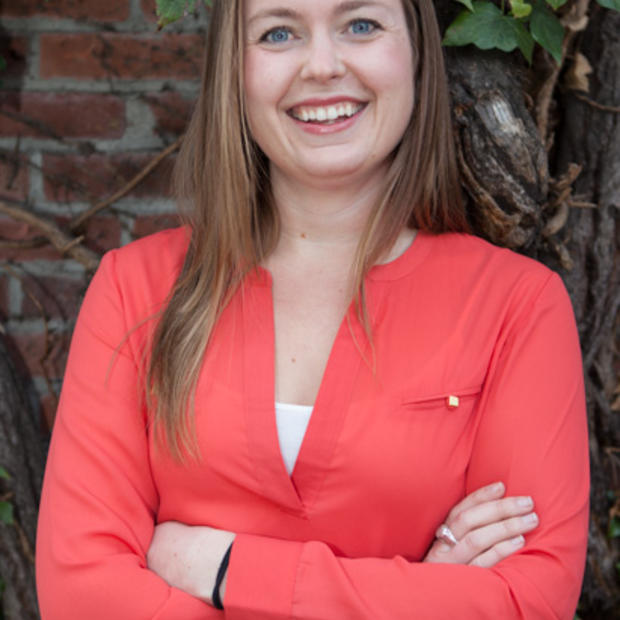I’ve got to come clean about something: I am a voluntwerp. A volundweeb, I’m cuckoo for after school tutoring, for brain melds about non-profit strategy, for facilitating kickball games for middle schoolers, and sounding out hard words with ESL elementary schoolers.
So when I heard about Flash Volunteer, a relative newcomer to the Seattle social start-up scene, I was already biased. I wanted to love it. (Editor's note: Flash Volunteer is a Crosscut advertiser.) I wanted to use it to continue this trend of volunteer sluttiness, whoring myself out to new organizations across King County, all in exchange for that little serotonin squirt that comes with thinking you've done something worthwhile.
But after trolling the browser-based version and downloading the app, I was crushed.
The app’s interface is good: Volunteers can easily find volunteer opportunitiess in their neighborhood using either a list-based or map-based interface, track the events they’ve attended, and see volunteer opportunities others recommend. Need help planting the traffic circle on your street? Want to help your elderly neighbor find a ride to the doctor? Any user can instantly create a volunteer opportunity that other app users can access and sign up for. The scope of the project is still limited to King County, but that’s understandable for a relative newbie whose mission is to increase volunteerism in Seattle.
The biggest letdown though lies in Flash Volunteer’s volunteer opportunities. The browser-based version of the site listed only five in all of King County during the team's launch campaign. The app, for some bizarre reason, had a longer and completely different list of events . . . all of which had already taken place. Some as far back as May.
The problem of populating content is a bit of a chicken-and-egg scenario for any network-building app. (Which came first, the volunteers or the volunteer opportunities?) But five events in the midst of an app launch is abysmal by any standards.
There were other bugs too. When I left the app, I was asked to log in again — a big bummer for app use — but couldn’t, using either my username and password combo or the app’s Facebook integration (It turned out there was a bug for the iPhone 4S. which the team promised would be fixed on Friday. It wasn’t.) My inner volunteer idealist was crushed.
Still, I badly wanted to give this local team — a volunteer-run not-for-profit — the benefit of the doubt, so I called Brad Wilke, the executive director and a recent UW Foster School grad, who founded and runs Flash Volunteer in his “spare time.”
On the phone Wilke is disarmingly open and sweet about the challenges of entrepreneurialism on a budget: By 2011, both original developers had dropped out of the project, leaving Wilke holding the reins. He admits he might have given up if it weren’t for the 2011 Social Innovation Fast Pitch event (SIFP), where the project won the $10,000 Microsoft Award for Social Innovation. That cash enabled the team to develop the new app. In fact, the entire project has been completed with just $14,000 and a core three-person team that meets twice a week over dinner.
Despite the low-budget challenges, Wilke has plans for Flash Volunteer. He’s eyeing the corporate social responsibility craze as a new revenue source — several potential corporate clients have already contacted him about licensing the FlashVolunteer platform to manage internal volunteer efforts.
And as for those five volunteer opportunities living in the Flash Volunteer system as of last week? Wilke says he’s working on a tentative partnership with San Francisco-based VolunteerMatch (Flash’s much older and much more robust volunteer app cousin) that would allow Flash users to access Match’s more than 1,000 Seattle area volunteer opportunities. If it goes through, he says, Flash Volunteer users can expect to see a much more robust set of volunteer opportunities popping up in October.
If that partnership does work out, Flash Volunteer feels poised to become an essential tool for Seattle’s would-be do-gooders. Because it allows anyone to post events (rather than just non-profits as with VolunteerMatch's system), any Tom, Dick or Harry who wants help planting their neighborhood traffic circle or finding a ride to the doctor for their elderly neighbor can use the site to find do-gooder allies. That could be a very useful tool for communities to connect and act on their own perceptions of neighborhood needs.
In Wilke’s dream scenario, hordes of overly-serious (my words, not his) downtown office workers will be able to find and participate in volunteer opportunities on their lunch breaks, perhaps even generating enough serotonin squirts to power through the deadly post-lunch work hours and board the bus home with a smile.
Or at least that’s how my idealistic volunteer self imagines it.



